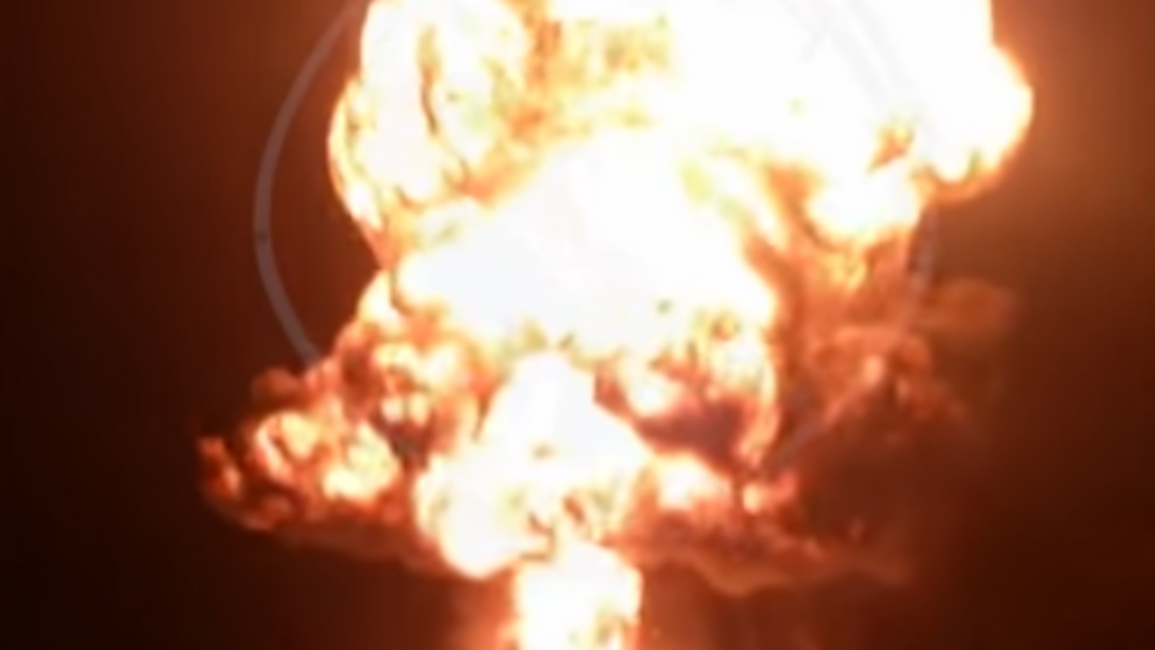Arab separatists 'blow up' two major Iranian oil pipelines
The Arab Struggle Movement for the Liberation of Ahwaz claim an armed wing carried out two simultaneous dawn-time raids on the pipelines early Tuesday, and released a video allegedly showing the attack.
Fighters from the Brigades of the Martyrs al-Nasser Mohiuddin used explosives to destroy pipelines close to the town of Omidiyeh and in Deylam, both in the Ahwaz-speaking region of Iran known by authorities as Khuzestan.
The group said the attacks caused major damage to the local oil infrastructure and "massive fuel losses".
The Ahwazi rights' movement said the attacks were carried out "to protest at the continuing occupation of [our] land" by Iran and attacks on infrastructure would be intensified in 2017.
A statement from the field commander of the Mohiuddin Brigades said that "the operations are part of an overall strategy [to target] economically sensitive sites including oil and gas installations".
The group said the first pipeline targeted belonged to the state-owned Aghajari oil company, which pumps out 440,000 of barrels of crude oil a day from the Maroun oilfield.
|
|
|
| The group released a short video claiming to show one of the attacks [YouTube] |
The separatists said the attack forced operations at the oilfield to halt until new pipelines are installed.
Mohiuddin Brigades' second operation caused the "complete destruction" of pipelines from the Baharkan oilfield, where 60,000 barrels of crude are transported each day, according to the group.
Oil and gas revenues from the two fields are used to "fund the Iranian regime's brutal oppression of the Ahwazi people and other Arab peoples regionally", Mohiuddin Brigades said.
Ahwazi groups have shown support for Syria's opposition battling the Syrian regime and allied Tehran-supported militias.
On the same day of the attacks, Iran approved a list of 29 European and Asian companies to bid for oil and gas projects in the country.
This includes giants in the energy sector such as Anglo-Dutch giant Shell, Italy's ENI, France's Total, Russia's Gazprom and Lukoil, and Schlumberger of the Netherlands, according to AFP.Iran's Ahwazi Arabs are seeking an independent homeland and have complained of discrimination by authorities, while Amnesty International said there has been "sweeping arrests" of activists.
Ruth Riegler contributed to this story.



